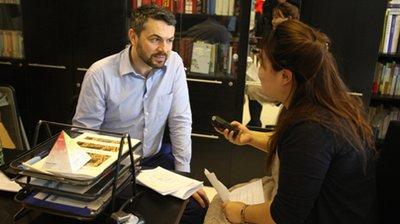第一章测试1.Although many aspects of culture are subject to change, the _______ of a culture resists major alterations.
A:tradition B:history C:background D:the deep structure
答案:D
2.______ is at the core of intercultural communication.
A:Culture B:Language C:Sender D:Receiver
答案:B
3.Which of the countries doesn’t belong to individualistic culture?
A:France B:Italy C:Greece D:New Zealand
答案:C
4.It is a universal truth that language is _____ by culture and in turn it ______ culture.
A:determined, reflects B:displayed, influences C:influenced, reflects D:shaped, influences
答案:C
5.Learning is the most important character of culture where and how can we learn is easy to explain.( )
A:对 B:错
答案:B
6.Conformity is high in loose cultures. In Japan, which is a loose culture, people are sometimes criticized for minor deviations. ( )
A:错 B:对
答案:A
7.The culture is more likely to be tight where people are highly independent.( )
A:错 B:对
答案:A
8.Classifying culture into active culture and passive culture is from the perspective of attitude towards nature.
A:错 B:对
答案:B
9.Neutral cultures are not necessarily cold or unfeeling, nor are they emotionally constipated or repressed.( )
A:对 B:错
答案:A
10.Communication occurs when two or more people interact through the exchange of messages
A:错 B:对
答案:B
温馨提示支付 ¥3.00 元后可查看付费内容,请先翻页预览!

